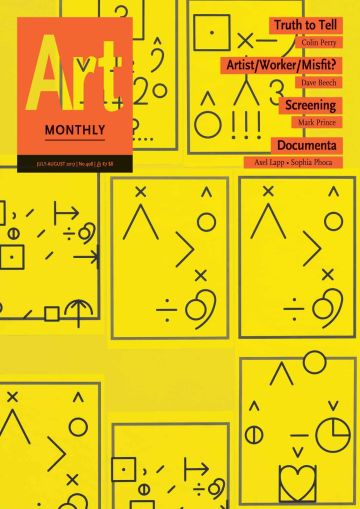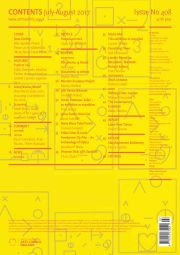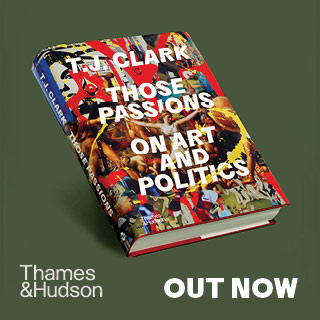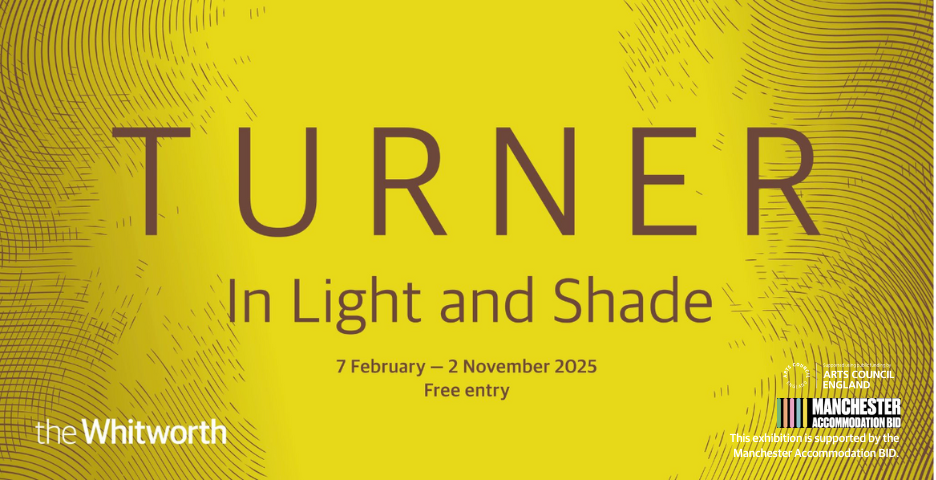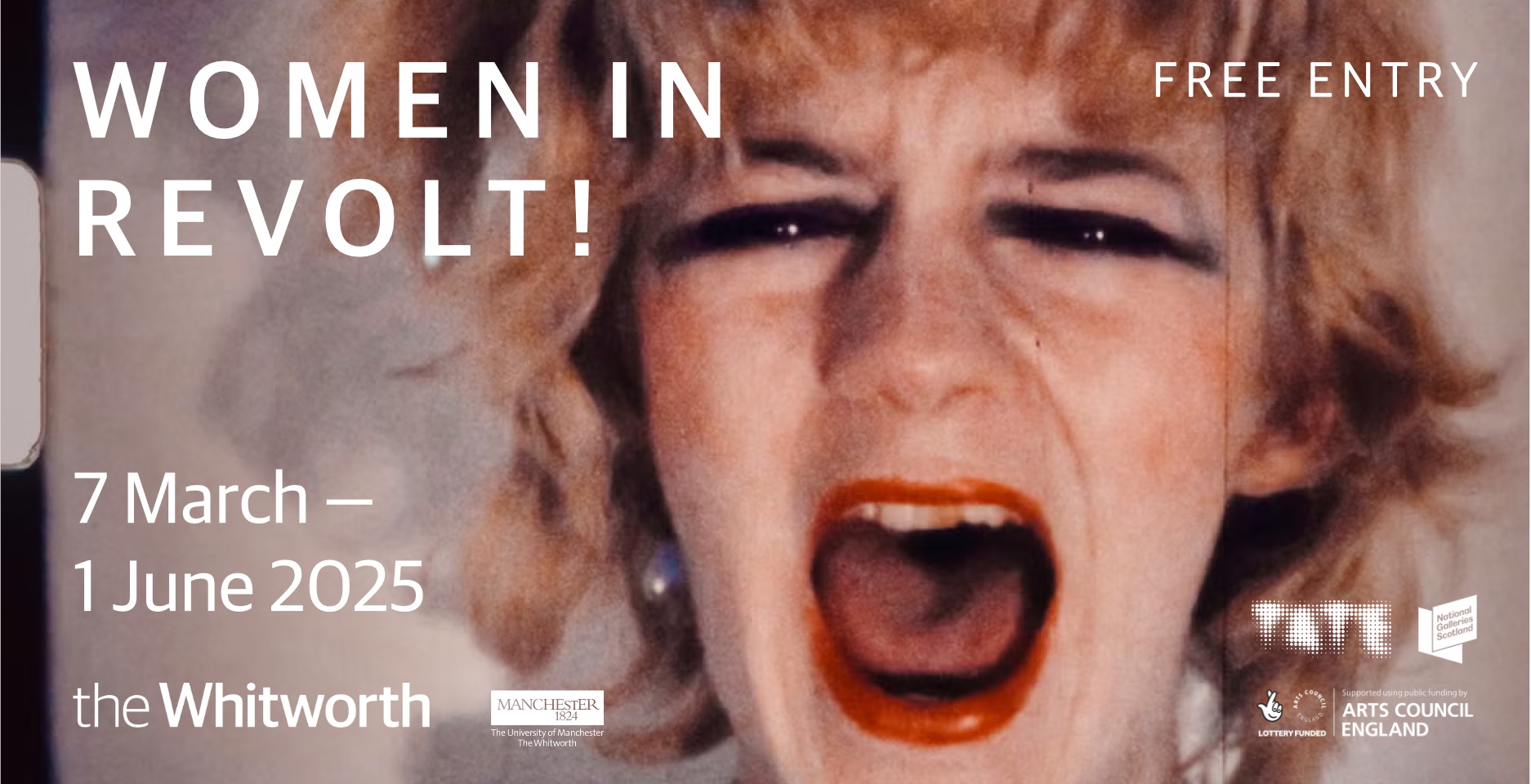Art Monthly 408
Jul-Aug 2017
Truth to Tell
Colin Perry
Artist/Worker/Misfit?
Dave Beech
Screening
Mark Prince
Documenta
Axel Lapp • Sophia Phoca
Buy Now – select:
Want to read this right now?
Get instant access to the entire back catalogue via Exact Editions from only £8.99!
Contents
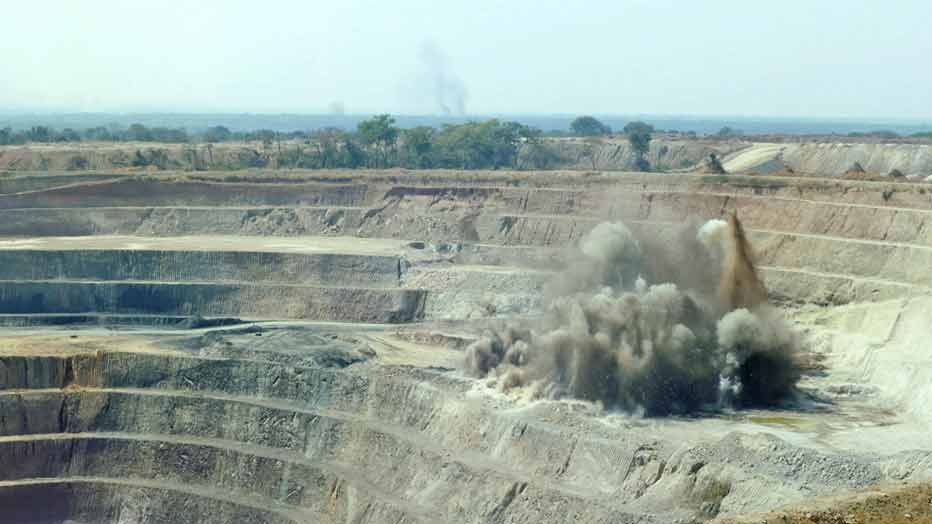
Bodil Furu Copper Eaters 2016
Feature
Truth to Tell
Colin Perry asks whether Twitter destroyed truth or created a greater appetite for it
In the era of so-called alternative facts, artists like Bodil Furu, Wang Bing, the Karrabing Film Collective and Eric Baudelaire are finding new ways of handling the issue of truth and truth-telling.
Hannah Arendt's point is that politics is not oriented to follow the real; it is about sustaining power through fear and consent. We may be outraged that politicians lied to the public in 2003 with the 'dodgy' Iraq dossier or with the 2016 Brexit bus's promised £350m per week for the NHS, but we should hardly be surprised.
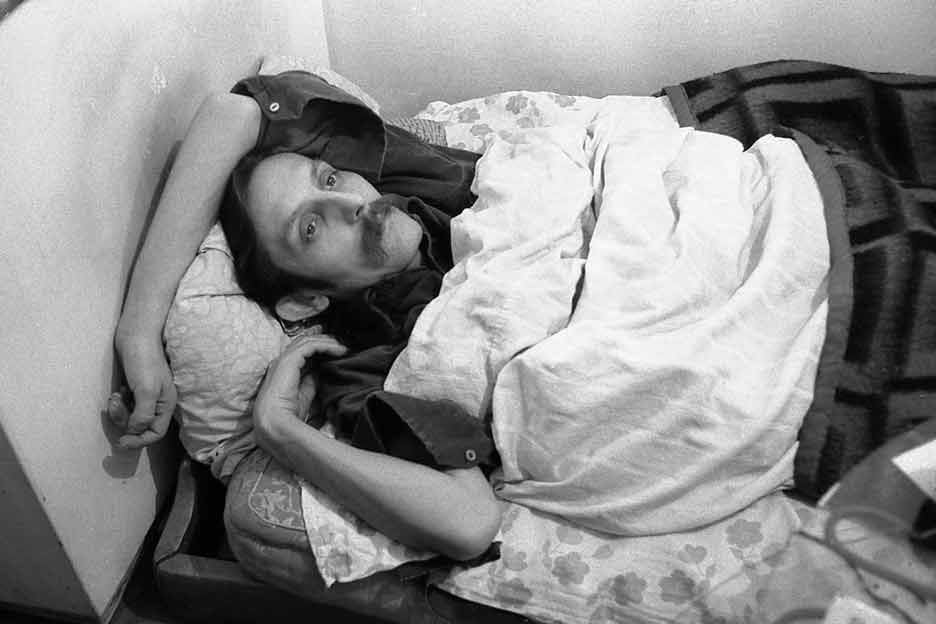
Mladen Stilinovic Artist at Work 1978
Feature
Artist/Worker/Misfit?
Dave Beech looks at the changing conception of the artist
From artisan to artist, and from cultural worker to the very model of the 24/7 worker in the neoliberal era, do any of the ways in which artists have been classified really fit?
As the artist has been brought into alignment with a new conception of the worker, there is one thing that cannot be retained from the old myth: its desiccated individualism. Brian Holmes is right, therefore, to draw out the political implications of the fact that the seemingly isolated artist in the studio is economically dependent on the work of others.
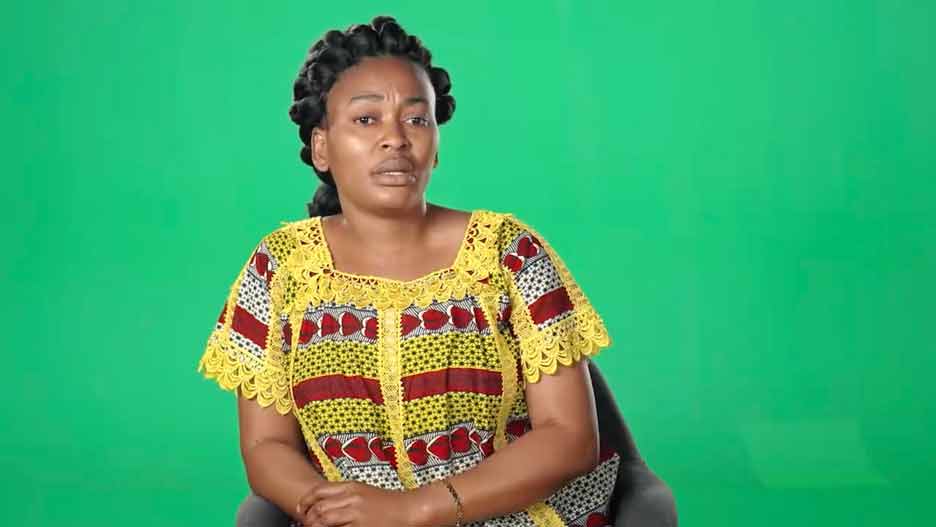
Candice Breitz Love Story 2017
Feature
Screening
Mark Prince on the limits of art's capacity to represent history
Art provides a screen that can both reveal and conceal history, as artists such as Marcel Broodthaers, Louise Lawler and Günther Förg, and, more recently, Candice Breitz and Bouchra Khalili, have shown in confronting the limitations of their chosen medium.
The literal image of photography – or film – is best placed to pick up Marcel Broodthaers' gauntlet. As Andy Warhol showed, it has both the literalness of the readymade and the allusiveness of the image.
Comment
Editorial
Duped
Complacency at the top of our local and national political systems has led to the tragedy of Grenfell Tower, where young artist Khadija Saye died along with dozens of others. The same complacency led Theresa May to call an election that has left the UK in thrall to the dogma of the DUP. Is it not time for those responsible to fall on their swords?
Surely May cannot continue to pursue an alliance with the DUP. In fact, she cannot continue.
Letters
Beauty of Execution?
Paul Carey-Kent continues to question Peter Suchin over the aestheticisation of war in art, and Suchin replies.
Iceland's Leases
Oliver Basciano on the reasons that Iceland is no longer represented in the Giardini of the Venice Biennale.
Artnotes
Shuffled and Ruffled
The junior minister pack has been shuffled at the DCMS and the arts have been handed to an MP, John Glen, who is under fire from the LGBT community over his support for a charity which has promoted the idea that being gay is something that could be 'cured'; the Arts Council of Northern Ireland is cutting funds next year to the organisations it supports; layoffs at Manchester University, including dozens at the School of Arts, have led professors to sign a letter of no confidence in the senior managment team; plus the latest news on galleries, appointments, prizes and more.
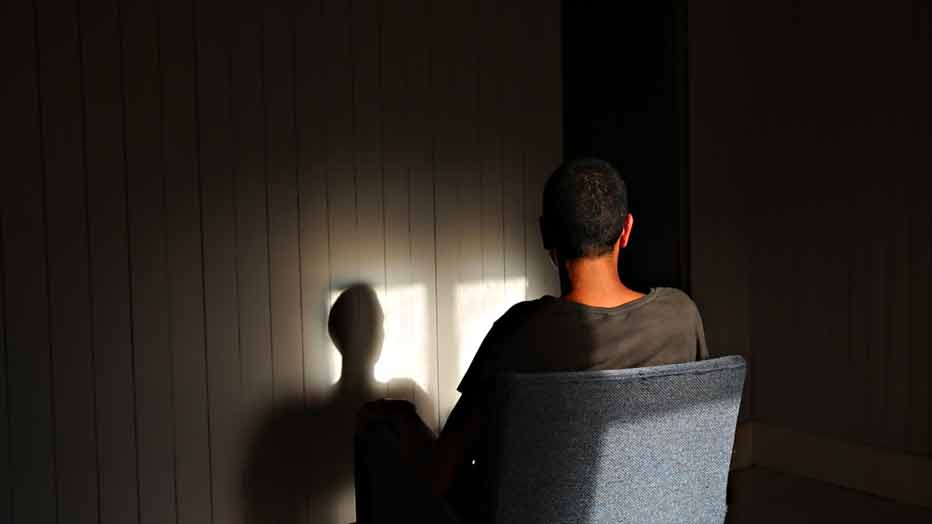
Helen Cammock There's a Hole in the Sky Part II 2016
Profile
Helen Cammock
Chris Fite-Wassilak on the London-based artist who, following a residency in Barbados, works with photography, moving image and installation to address the question of who creates history.
Fragmented narration underlines Helen Cammock's videos, performances and installations – quoting, singing, ventriloquising, a procession of voices that successively inhabit the artist.
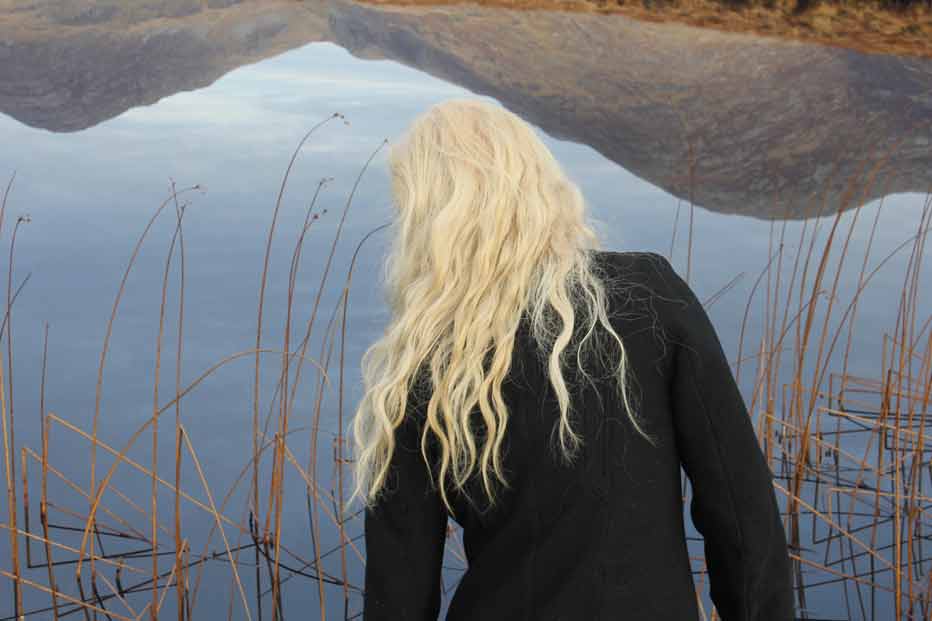
Vivienne Dick The Irreducible Difference of the Other 2013
Exhibitions
Documenta 14 Kassel
various venues
Axel Lapp
Documenta 14 Athens
various venues
Sophia Phoca
Münster Sculpture Project
various venues
Martin Herbert
57th Venice Biennale
various venues
Griselda Pollock
Simon Patterson: Safari – an exhibition as expedition
De La Warr Pavilion, Bexhill-on-Sea
Tom Emery
Jenna Sutela: Nam-Gut
Banner Repeater, London
Jamie Sutcliffe
Mene Mene Tekel Parsin
Wysing Arts Centre, Cambridge
Hannah Gregory
Felipa César & Louis Henderson: Op-Film – An Archaeology of Optics
Gasworks, London
Jonathan P Watts
Vivienne Dick: 93% Stardust
IMMA, Dublin
Chris Clarke
Marlie Mul: This exhibition is cancelled
GoMA, Glasgow
Lauren Velvick
Everything Flows
Millennium Gallery, Sheffield
Bob Dickinson
London Round-up
Mazzoleni • Skarstedt • Richard Saltoun
Peter Suchin
Reviews
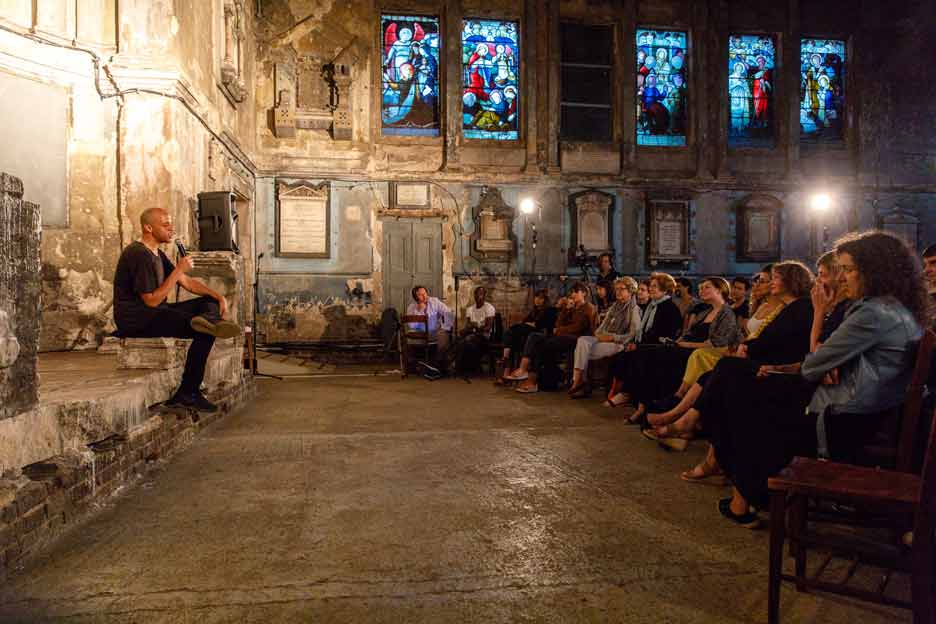
Wil Rawls Q&A 2017
Performance
Block Universe
Kathryn Lloyd
The festival cites performance as a mode of challenging the 'status quo in divisive times'.
Reviews
Books
Walking Cities: London
Michael Hampton
Walking Cities: London is not a user guide for the mainstream tourist keen to 'do' London, but 19 intensive reports often from obscure neighbourhoods or familiar yet overlooked streets.
The Contemporary Condition
Rikke Hansen
Each publication reads like a chapter dreaming of becoming something longer. Or, alternatively, a book dreaming of becoming an essay. It occupies a middle space.
Report
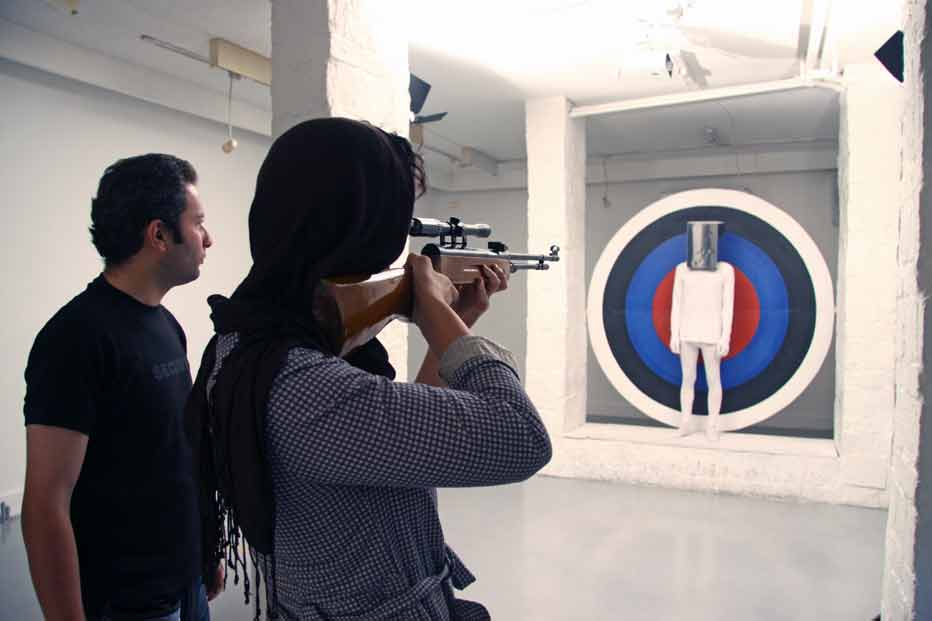
Amir Mobed Come Caress Me 2010
Letter from Tehran
Past, Present, Future
David Gleeson
Twentieth-century western art is, to say the least, well represented in Tehran. And it does not overshadow contemporary work by Iranian artists, who both respect it as a rich resource and protectively monitor it when suspicions have been raised about it being sold off.
Artlaw
Copyright
Idea/Expression Dichotomy
Henry Lydiate
Contemporary art practices throughout the five decades since Marcel Duchamp's death have increasingly placed emphasis on ideas and concepts rather than forms. However, artists' ideas and concepts are not yet recognised and protected by intellectual property laws, copyright in particular.
Listings
Events
Calendar
The updated events and exhibitions calendar can also be viewed online.
Exhibitions
Exhibition Listings
Art Monthly's exhibition listings can be viewed online.

